Music Reviews
Classical Music - Part 26 - May, 2001
Jason Serinus
Ratings: Extraordinary Good Acceptable Mediocre Poor
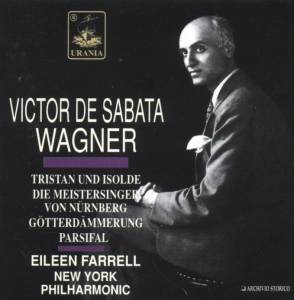
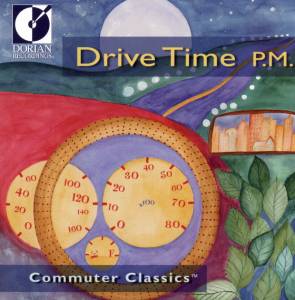
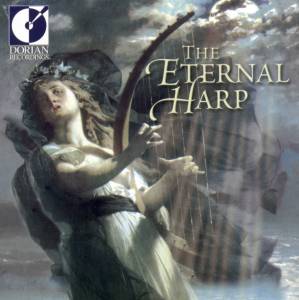
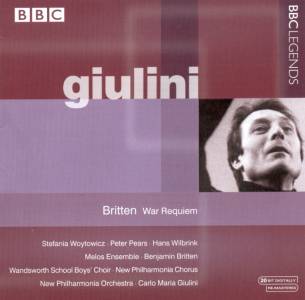
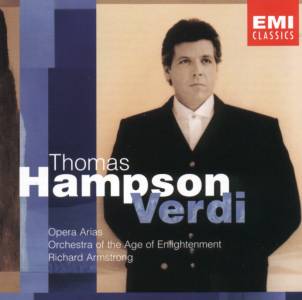
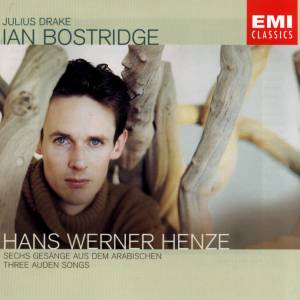
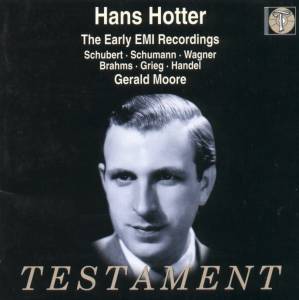
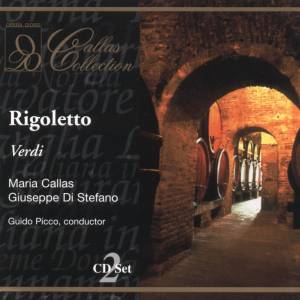
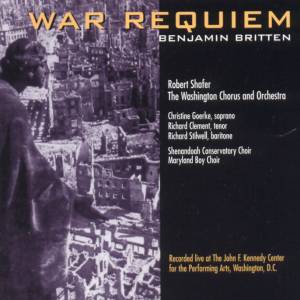
HANS WERNER HENZE � IAN BOSTRIDGE � JULIUS DRAKE � EMI 7243 5 571122 9
Lyric tenor Ian Bostridge's impeccably sung recording of two song collections by Hans Werner Henze (b. 1926), ably accompanied by pianist Julius Drake, offers music that is as troubling and probing as it is beautiful. Henze, among our most profound contemporary composers, grew up in Germany at a time when all the contemporary music, art and literature that spoke to him was being condemned by the Nazis. Motivated to write in increasingly subversive styles, his late 1960s compositions were marked by am overt commitment to radical politics, including the unfurling of red flags in opera houses. Although his political statements have somewhat cooled, his music continues to address the dark side of the human condition, including our frequently unspoken, subconscious thoughts. Hardly suitable for background listening, his works are always absorbing and fascinating.
The disc's main offering, Six Songs from the Arabian (Sechs Gesange aus dem Arabischen), was written specifically for Bostridge, who premiered it in 1999. Lyrics, all of which recount events taking place in real life, are mostly by Henze, including those for "The Praying Mantis," which concerns a female mantis who, after mating, eats her "husband." The composer suggests that these songs are "not only peopled by pirates sea monsters and other monstrosities, but contain 'moments of beauty' in the form of love and love's pleasures, even if those pleasures are constantly marred by the ocean salt and spray."
Also included are three songs to poems by W.H. Auden. The first song is a memorial to a departed cat; the second describes the poet Rimbaud; and the last is a moving, lyrical love song. (Henze was so taken by Bostridge's art when he first heard the tenor sing these songs in 1996 that he resolved to compose what became the Arabian songs especially for him.) Here, Henze tries "to achieve a musical equivalent for the structures, ideas and images of the verse."
Henze's deeply personal, radical music is consistently absorbing and fascinating. You may not immediately understand all of its layers of meaning, but careful listening will reveal its integrity and beauty. If you are willing to venture into areas of the forbidden, including the shadow places within your own psyche, this music will draw you in. Strongest possible recommendation.
BRITTEN � WAR REQUIEM
1. WASHINGTON CHORUS AND ORCHESTRA � ROBERT SHAFER � TWD 3898
2. NEW PHILHARMONIA CHORUS AND ORCHESTRA � CARLO MARIA GUILINI � BBCL 4046-2
My subject is war and the pity of war.
The poetry is in the pity�
All a poet can do today is warn.
This telling excerpt of poetry by Wilfred Owen, a decorated British war hero murdered just one week before the end of WWI, served as the inscription on the title page of the War Requiem choral masterpiece by composer Benjamin Britten (1913-1976).
Thirty-four years later, US Secretary of Defense William J. Perry introduced this 1995 Kennedy Center Concert Hall performance of Britten's chilling work about the horrors of war. In his comments, Perry ignored Britten's Conscientious Objector status and exemption from British military service. Nor did the Secretary of Defense mention, in this era of "Don't Ask, Don't Tell," that Britten composed the War Requiem's tenor part for his longtime life partner, Peter Pears (1910-1986). In fact, if you only read his comments, and didn't listen to the recording, you might think that Britten had written an oratorio about how we have to wage war in order to prevent war.
Britten was commissioned to write the work for the 1962 consecration of the new Coventry Cathedral, the original medieval building having been bombed out in WWII. Choosing to intersperse the traditional Latin Missa pro Defunctis with excerpts of Owen's poetry, he assigned performance of the Latin Missa to soprano soloist, chorus and full orchestral accompaniment, reserving Owen's poetry for tenor and baritone soloists with chamber ensemble accompaniment. Conceived for the international solo trio of Russian Galina Vishnevskaya, British Peter Pears, and German Dietrich Fischer-Dieskau, Britten recorded the work the following year (Decca 143832). Issued at a time of growing anti-war sentiment, recently remastered, and still considered the reference recording of the work, it sold an unprecedented 200,000 copies in just five months.
This two-disc, full price recording, winner of year 2000 Grammy for best choral recording, features Robert Shafer conducting The Washington Chorus and Orchestra, along with the Shenandoah Conservatory Choir and Maryland Boy Choir, in a fine, if somewhat laid back performance. The soundstage is huge and full, with soprano Christine Goerke, tenor Richard Clement, and baritone Richard Stilwell doing an excellent job. All in all, if you did not hear another performance of the work, you would be quite satisfied with this one.
However, the BBC has recently released a one disc 1969 live performance which features Britten conducting the Melos Ensemble; soloists soprano Stefania Woytowicz, tenor Peter Pears, and baritone Hans Wilbrink; and the great Carlo Maria Giulini conducting the Wandsworth School Boys' Choir, New Philharmonia Chorus, and New Philharmonia Orchestra (BBCL 4046-2). Though degradation of the original stereo tapes compromises sound quality in some places, the operatic intensity of this performance packs such a wallop as to make one wonder if the Washington forces had toned everything down to help save Admiral Perry's face. Especially arresting is Pears. Captured 25 years after his first recording with Britten, this unique tenor still had a voice that could chillingly capture the horror and decay of war. It's not the ideal voice for a suite of lullabies, but it is the voice Britten had in mind for his frequent excursions into the dark underbelly of the human psyche. If you really want to hear what this work is about, this Giulini/Britten recording will prove a valuable supplement to the discs already mentioned.
DAVID DEL TREDICI � SECRET MUSIC - A SONGBOOK � CRI CD878
It's no secret that David Del Tredici (b. 1937, Cloverdale, CA) has always been, by his own admission, "out on a limb" musically. This songbook, a collection of three sets of songs written between 1996 and 1999, shows that he has certainly not become more conservative as he has entered his 60's. If anything, since his recent coming out, and the incorporation of personal themes into his compositions, the mature Del Tredici has become even more "in your face" than ever.
Secret Music's release coincided with the May 3-6 San Francisco Symphony Orchestra's world premiere of Del Tredici's Gay Life, a 45-minute song cycle for baritone and orchestra. Commissioned by the SFS, the work was conducted by Michael Tilson Thomas. It also preceded, by just two weeks, the May 17 New York premiere of Brother, an eight song operatic scena which Del Tredici composed for performance artist and poet John Kelly. Kelly sings four of the Brother songs on this CD.
Some history is in order. Del Tredici became known early on as a concert pianist, performing major concertos with the San Francisco Symphony. After a period of writing dissonant serial music in the 1960s, often to texts by James Joyce, he began his return to tonality at same time as he became obsessed with Lewis Carrolls' story of Alice's Adventures in Wonderland. The composer gained fame and notoriety for his numerous wild Alice pieces, written mostly for voice and large orchestra. These include Adventures Underground (1972), which brought cheers and screams from a recent San Francisco Symphony Mavericks Festival audience; Final Alice (1975), which the composer describes "a huge burst of tonality"; In Memory of a Summer Day, which received the 1980 Pulitzer Prize for Music; and the still unperformed opera, Dum Dee Tweedle (1992).
After many years of separating his musical persona from his personal life, Del Tredici's experiences with 12-Step recovery from alcohol and sex addiction, losing a lover to AIDS, and Oakland's Body Electric School (founded by Joseph Kramer), led to Del Tredici's total public embrace of his own sexual orientation. With his liberation came a virtual outburst of song. In the last five years, he has written over 50 songs, 12 of which comprise this 75-minute disc. Del Tredici accompanies all the selections in grand fashion.
Miz Inez Sez, a cycle of 5 songs for very high soprano and piano, sets the poetry of the American Colette Inez. The composer explains that "As had James Joyce, so now does Colette Inez touch my damaged Catholic nerve, which is a spot full of hurt and, paradoxically, humor - that effective, if temporary, antidote to pain."
There is nothing temporary about these songs. Sung by the extraordinary Hila Plitmann, to whom they are dedicated "with admiration and friendship," they are a hilarious, wild, totally irreverent romp that deserves a permanent place in the classical song literature. Plitmann is alternately sweet, touching, dramatic beyond belief, and astounding in her virtuosity. Everyone involved pulls out all the stops, including slams on the piano, the widest possible vocal range, coloratura leaps, and musico/linguistic excursions to the seeming edge of sanity. Though CRI's recording gives Del Tredici's virtuosic pianism too much prominence, making resort to the liner notes essential for extracting every bit of humor and irony from these gems, the rewards are worth it. Without wishing to give anything away, I shall simply say that, from now on, I shall treat every sample of Armour baloney as a holy sacrament.
The 3 Baritone Songs, drawn from the 1999 nine-song Inspirational Song cycle, are set to poems clearly relevant to Del Tredici's life. Rumi's Quietness, a poem about love and transcendence; Michael Klein's loud Drinking Song, in which alcohol and sex fail to submerge pain; and Jaime Manrique's Matthew Shepard, which hypothesizes the young martyr's final inward journey as he dies tied to a fence, are sung by baritone Chris Pedro Trakas. The composer's language is quite personal, neither as showy, nor as immediately revealing, as in the Inez cycle. Trakas has a fine voice, strong and solid in declamation, but possessed of a somewhat distracting wobble when singing slow legato passages. While Drinking Song is an undeniable success, questions arise as to whether Del Tredici fully captures the transcendent spirituality of the other poems.
John Kelly initially made his mark in Paved Paradise, a one-person show in which he "channeled" Joni Mitchell while singing 18 of her songs. Here, he channels his own love poetry. Without benefit of visuals, we are left with a less than perfect voice which varies between baritone and sweet falsetto. The subject matter is ripe and quite appealing, the music interesting and highly accessible, but occasionally pedantic in its repetition.
Though Del Tredici constantly receives major commissions from orchestras and ensembles - he's currently writing a String Quartet with voice for the Elements String Quartet, which sets the poem "Wondrous the Merge" by celebratory poet James Broughton - shockingly few of his works are available on disc. This CD of secret music - celebrating "beauty spots to be cherished" - is sure to open ears and eyes, and win Del Tredici a much deserved following. Unless you're the Pope himself, I can't imagine you not loving Miz Inez Sez, and leaving a copy at the grave of your favorite Parochial School teacher.
DRIVE TIME P.M. � COMMUTER CLASSICS � DORIAN DOR-90020THE ETERNAL HARP � DORIAN DOR-90019
With longer commute times translating into more hours stuck in vehicles, our only aural outlets have become cell phones, the radio, CDs/tapes, or screaming until we turn blue. Cell phones cost lives, and too many radio stations have become dull, basing their playlists on rating surveys rather than a desire for variety and exploration. This makes these two light-filled compilations welcome indeed.
The Dorian label is known for crystal clear, sonically superb Early Music recordings that emphasize timbral variety and expansiveness. These discs are true to form. They also offer a vital alternative to the typical romantic excess or hackneyed baroque trio usually heard on car radios.
Drive Time P.M. offers small ensemble instrumental and vocal selections. Tracks include lute and flute solos by Ronn McFarlane and Chris Norman; medieval Celtic music by the Altramar Medieval Music Ensemble; lovely selections by Mendelssohn, Tchaikovsky, Lully, and Massenet; medieval Spanish music by Ensemble Alcatraz, and Bach played by guitar duo and famed ensemble Les Violins du Roy. The Eternal Harp CD, which includes vocals by Kitka, tenor Paul Rendall, and soprano Custer LaRue, offers an inviting variety of delicate European harp sounds and mostly traditional, medieval, and renaissance repertoire.
While some of this music would be obliterated by noise coming through open car windows, its pristine delicacy, heard in an air-conditioned environment, is so fresh and winning that those who prefer to drive in sour moods will be forced to resort to 24-hour news stations to keep their realities intact.
THOMAS HAMPSON � VERDI OPERA ARIAS � ORCHESTRA OF THE AGE OF ENLIGHTENMENT � RICHARD ARMSTRONG � EMI 7243 5 57113 2 8
Though you may associate Thomas Hampson with lighter, more mellifluous fare than that afforded by Verdi, Hampson does a marvelous job in this recital of 11 arias from relatively early Verdi operas. Beginning with Ernani and I due Foscari (1844), written when Verdi was 31 years old, and continuing with Giovanna d'Arco (1845), Macbeth and I masnadieri (1847), Il corsaro (1848), and Stiffelio (1850), Hampson ends with arias from several well-known "middle period" operas, Il trovatore (1853), La traviata (1853), and Les Vepres siciliennes (1855). Verdi's arias are about cursing one's fate, disaster in battle, ruling others, despair, lost love, jealousy, possessiveness, nightmares, damnation, disgrace, suicide, consolation, denunciation, murder, and other such affairs of da state. It's the music of men who would do anything in the world, including ending the lives of thousands of others, rather than admit to their feminine side. In this respect, Verdi's music is far closer to the realities of contemporary politics, and far more relevant to what's going on with this century's version of the ruling class, than those who disparage classical music might lead you to believe.
Hampson, at least on this disc, seems capable of summoning up the darkness and strength that these roles require. He may not sound as biting and demonic as some, nor end his arias by the frequently encountered muscling up to swollen high notes, but he offers in their stead a steadiness and musicality that one rarely encounters in this repertoire. What is special about his singing is his ability, when afforded the dramatic opportunity, to soften his tone, sing from the heart, and round off his phrases with a sweetness and grace usually heard only in the bel canto repertoire. Graced with the period instrument playing, this is a special experience indeed.
VERDI � RIGOLETTO � MARIA CALLAS, GUISEPPE DI STEFANO� � GUIDO PICCO � ALLEGRO OPD-1253
Allegro has been doing a superb job of remastering classic live opera recordings from the '50s, '60s and '70s. This one, a famed May 29, 1952 Mexico City Palacio de Belles Artes performance, is a knockout. Singing the roles of Gilda and her paramour, the Duke of Mantua, the 28-year old soprano Callas and the prime-voiced tenor Di Stefano match each other in power, beauty, and sheer chutzpah. Callas may have sung Gilda with more subtlety and finesse as she entered her thirties, but she did not dare throw in optional high E flats of such power as to undoubtedly contribute to Mexico City's future earthquakes. The best way to serve Verdi's drama may not be to end "Caro Nome" by exiting the stage on a blazing high E-flat, but it sure blows the socks off the music.
In taking his voice to the very edge, Di Stefano is very much Callas' equal. In full command of his faculties at this point in his career, he offers both blazing high C's and hushed, honeyed sweetness. Holding nothing back, his "La donna e mobile" is so forward and stunning that he indulges both the audience and himself by encoring the second verse, again nailing the high C to perfection.
Hearing these two encourage each other to go all out helps explain why, just six years later, Callas' wobble increasingly intruded on her fraying upper range, and Di Stefano's high notes were less sung than shouted. Take advantage of the opportunity to hear these two colossal singers when their voices were the equal of their egos.
VICTOR DE SABATA � EILEEN FARRELL � WAGNER � NEW YORK PHILHARMONIC URANIA URN 22.167
A few months back, I raved about the famed 1970 live recording of Leonard Bernstein conducting the New York Philharmonic, soprano Eileen Farrell and tenor Jess Thomas in scenes from Wagner's Gotterdammerung (available only in a special 10-CD Bernstein/NY Philharmonic set). Recorded when Farrell was 50 years old, the soprano was still in gorgeous voice, but lacked the strength at the very top that she offered in her younger years. This is no concern here, as the 31 year old soprano, captured at her best in 1951, sings Isolde's Liebestod from Tristan und Isolde and Brunnhilde's Immolation Scene from Die Gotterdammerung with incomparable beauty and ease. (The recording is mainly devoted to Victor de Sabata conducting selections from four Wagner operas, but it is for Farrell that most opera queens will snap up this disc.)
Farrell's voice, like Flagstad's before her, was warm and full on the bottom, and solid without being steely on top. But of the two sopranos, only Farrell brought to Wagner the same kind of sensual fullness that another great soprano, Leontyne Price, brought to Verdi. Farrell may not have been able to infuse Isolde's Liebestod with the wealth of nuance and ecstatic passion that the 42-year old Lotte Lehmann conveyed in her famed 1930 recording of the scene - no one else ever has -- but only Farrell had the voice big enough to allow her to be heard with ease over a full orchestra.
La Farrell made lamentably few opera recordings. If you supplement this disc with her 1970 live recording discussed above, plus the pairing of her 1961 studio performances of the Gotterdammerung Immolation Scene and five Wesendonck Lieder with her 1967 recording of the Liebestod, all with Lenny conducting the NY Philharmonic (Sony Royal Edition No. 100, deleted), I believe you'll have all of her available Wagner recordings. Turn off the lights, turn up the volume, and experience a voice that could carry all the way to Valhalla.
THE ARTISTRY OF HANS HOTTER
Of all the singers of the 20th century, the man whose voice and presence were most capable of conveying the essence of the archetypal father was bass-baritone Hans Hotter. Blessed with a huge, resonant instrument that could be scaled down to an intimate whisper, the man could sound invincible one minute and vulnerable the next. No matter what he sang, Hotter communicated a profundity and depth of spirit that seemed rooted in a primordial place of holiness and sagacity. If you can imagine a man whose voice could convincingly express the power of a God, the wisdom of a sage, and the humanity of an open-hearted mortal, you can begin to hear the sound of Hans Hotter in your head.
In the world of opera, Richard Wagner's Wotan, the God of Valhalla, is perhaps the greatest Daddy of them all. In Die Walkure, he has no choice but to punish his favorite daughter Brunnhilde for her sin of intervening in the affairs of mortals. But even as he puts his beloved daughter to sleep, protecting her with a ring of fire, he makes sure that love can dowse the flames and return her to life.
It was the Wotan of Hans Hotter, more than of any other recorded singer, that most fully expressed the tortured godliness of this strangely mortal immortal.
Hotter, still at towering presence at age 92, was born in Offenbach-am-Main. After preparing for a career as a conductor, he made his singing debut at age 20 in Handel's Messiah, and performed his first operatic role the following year. Less than 10 year later, Hotter sang the lead in the Munich State Opera's first production of Richard Strauss' Friedenstag. Late last century, Friedenstag was revived in a recent Sante Fe Opera production in which the lead was clothed in black leather.
At the same time as Hotter dominated the opera stage as Wotan, he became known as a supreme interpreter of German art song. With his voice paired down as necessary, Hotter's lieder interpretations evinced the same strength and surety that thundered through him when he strode across the stage carrying sword and shield.
Hans Hotter can be heard in his glorious maturity in four recent CD issues. HANS HOTTER � WALTER MARTIN � LIEDERABEND � Orfeo d'Or C 507 991 B offers a well-recorded, live 1961 mono recital of lieder by Schubert, Brahms, Wolf, Loewe, and Strauss. Performed at Hamburg's Beethoven-Saal, accompanied by the less than stellar Walter Martin, this event finds the 53-year old singer occasionally prone to the asthma-related unsteadiness that increasingly plagued him as he aged. Nonetheless, he is frequently magnificent, especially in songs such as Schubert's "Gruppe aus dem Tartarus" that call for a fullness of expression.
More consistently rewarding are three superbly remastered Testament issues. The first, WOLF LIEDER RECITAL � SBT 1197, features Hotter and the great accompanist Gerald Moore in 22 songs by Hugo Wolf recorded 1951-1959. Two of these lieder receive their first stereo release. The second, LIEDER RECITAL � SBT 1198, recorded with Moore in 1956 and 1957, contains songs of Schubert, Schumann, Loewe, Brahms, Strauss, and Pfitzner. While the bulk of its 27 selections are also in mono, nine receive their first stereo release. Finally, THE EARLY EMI RECORDINGS � SBT 1199 combines 1946-1951 recordings of lieder by Schubert, Schumann, Brahms and Grieg (variously accompanied by Gerald Moore, Michael Raucheisen, and Hermann von Nordberg) with 1948 and 1951 recordings of Wagner and Handel arias. Included is one previously unpublished song, a 1946 "Gruppe aus dem Tartarus" that receives far more convincing treatment 15 years later on the Orfeo disc.
Hotter's greatness is much in evidence in his famed interpretation of Schubert's "Wanderers Nachtlied II," set to poetry by Goethe.
Above all the summits it is quiet;
in all the treetops
you sense barely a breath;
the birds in the wood are silent.
Only wait, soon you too will rest.
Schubert creates the simplest of melodies to match this short verse. The music makes its mark through long, sustained phrases that must be sung as though effortlessly created by the gentlest of exhalations.
Singing slowly, Hotter marvelously captures the silence of peace, imbuing each word with that supreme sense of completion that many of us pray we experience before the end of our lives. The concentration is absolute. When Hotter stops to breathe, even his long, full breaths are magical, communicating as much as the tones they support. Equally magnificent is his flexibility of tempo, transforming a sequence of notes into a profound summation of life.
Hotter recorded "Wanderers Nachtlied II" many times. The earliest version, accompanied by Raucheisen in 1942, reveals a voice of youthful maturity. A later version, with Moore in 1957 (SBT 1198), finds Hotter even more sagacious, his tones softer than before. He also performed the song in his 1961 recital; faster and less flexibly performed than the earlier versions, it does not reveal the singer at his poetic best.
In striking contrast, the 1948 recording of Wotan's Farewell to Brunnhilde (Die Walkure, Act III - SBT 1199) finds a thunderously voiced Hotter giving full expression to Wotan's pain as he sings:
Farewell, you bold, wonderful child!
You, my heart's holiest pride.
Farewell, farewell, farewell!
Hotter movingly conveys the tragic struggle of a father torn between love and duty - a struggle whose leitmotiv has been repeated throughout the course of human history - with a depth rarely experienced on the operatic stage. Here, as everywhere, the sound of his voice touches on a level as primal as the beat of the human heart.
- Jason Serinus -� Copyright 2001 Secrets of Home Theater & High Fidelity
Return to Table of Contents for this Issue.

